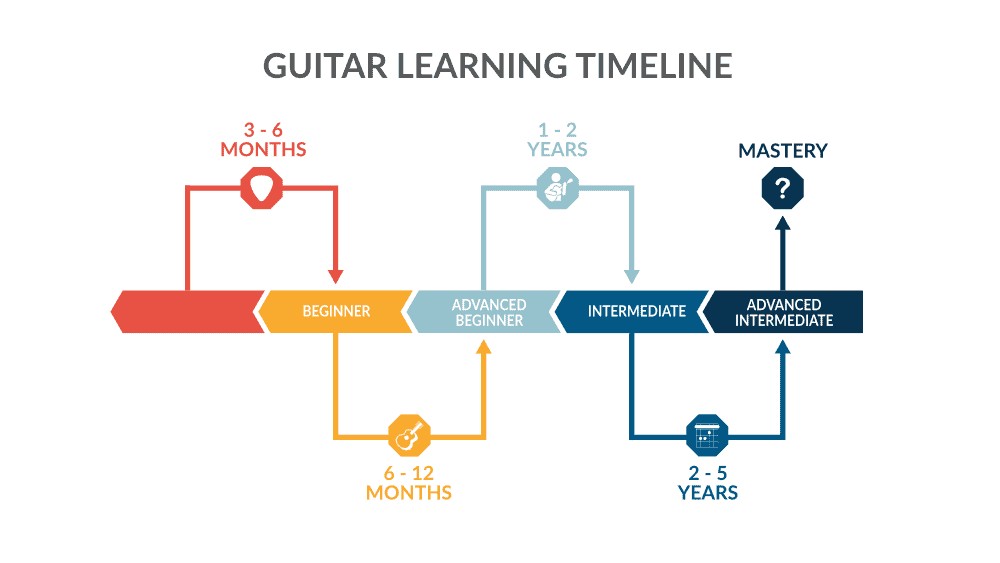Learning to play the guitar is a rewarding journey, but many aspiring guitarists wonder, “How long will it take to get good?” There’s no single answer, as individual progress depends on factors like practice time, learning style, and musical goals. However, this guide offers a realistic timeline of what you can expect at each stage of your guitar learning journey.
The Stages of Learning Guitar
While everyone learns at their own pace, understanding the typical learning phases can help set realistic expectations and maintain motivation. Remember, even guitar legends like Eddie Van Halen and Jimi Hendrix started from scratch.
Beginner Phase (3-6 Months)
In this initial phase, you’ll focus on building foundational skills:
- Developing calluses on your fingertips.
- Strengthening hand muscles and improving coordination.
- Learning basic chords and strumming patterns.
- Mastering simple songs.
This stage can be challenging as you adapt to the physical demands of playing. Persistence is key, as many beginners experience frustration and may be tempted to quit.
Advanced Beginner Phase (6 Months to 1 Year)
After the initial excitement fades, progress may seem slower. You’ll encounter your first plateau, but you’re still learning:
- Expanding your chord vocabulary.
- Exploring more complex strumming rhythms.
- Learning basic scales and melodies.
It’s crucial to maintain consistent practice during this period to push through the plateau and unlock further progress.
Intermediate Phase (1-2 Years)
This is the “buckling down” phase where dedicated practice yields significant results:
- Mastering barre chords.
- Developing smooth chord transitions.
- Building a solid understanding of music theory.
- Playing more complex songs and potentially joining a band.
Advanced Intermediate Phase (2-5 Years)
At this stage, playing feels natural and comfortable:
- Barre chords become easy.
- Strumming is smooth and rhythmic.
- You have a large chord library.
- You can play numerous songs from memory.
- You might explore lead guitar techniques like improvisation.
You’ll begin to refine your skills and focus on specific genres or techniques. The question of “how long” becomes less relevant as you embrace the ongoing journey of learning. You realize that “good” is a subjective and ever-evolving concept.
Focusing on the Right Questions
Instead of fixating on how long it takes to learn guitar, ask yourself more productive questions:
- How can I improve my barre chords?
- What should my practice routine look like?
- What specific skills do I want to develop?
Focusing on actionable steps and specific goals will accelerate your progress and make the learning process more enjoyable.
Conclusion: Enjoy the Journey
Learning guitar is a lifelong pursuit. Embrace the challenges, celebrate your achievements, and focus on consistent practice. By asking the right questions and maintaining a positive mindset, you’ll steadily improve and enjoy the rewarding experience of making music. Remember, the journey itself is just as important as the destination.

